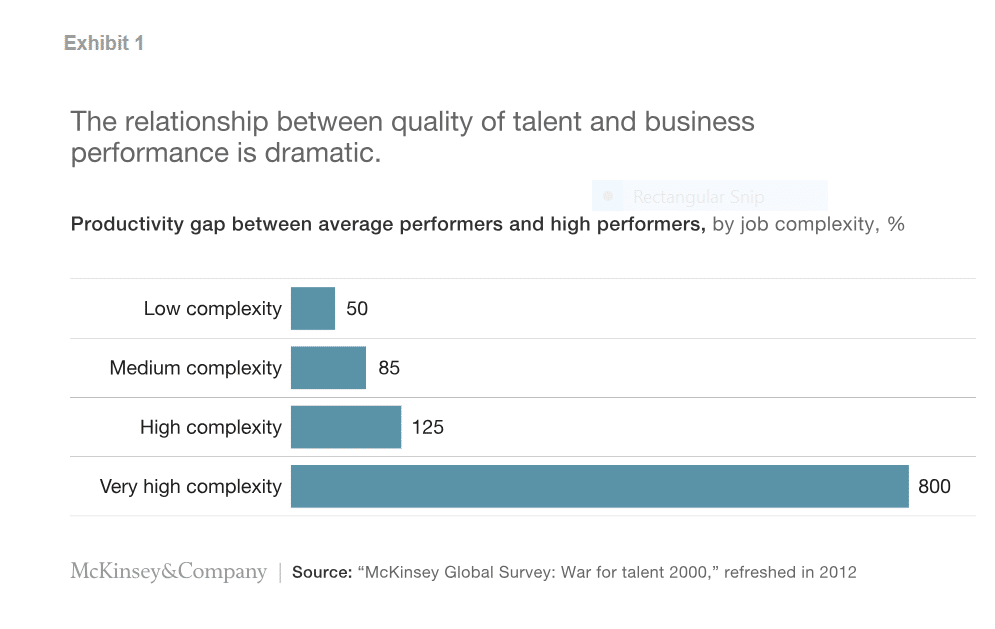Thirdly, diversify your search. These days we see disruption everywhere in the FMCG sector, in business models, pricing models, distribution, consumer path to product, etc. What companies need to do is to cast a wider net and look at other industries, attracting talent that has fresh solutions and new ways of thinking. This will also give them an opportunity to see how other organisations position themselves to acquire the right type of talent.
In my experience, one common mistake is to ruin the motivation of a potential new hire by waiting too long to give the candidate the final decision, stretching out the decision-making and showing that you are not that interested in them. This is no longer the employer’s market and a strong candidate will not wait for you when exciting challenges are waiting in the current workplace and elsewhere. You are not the only company competing for this candidate, especially if their current employer will lose out significantly by failing to retain them! What I have noticed is that when an employer shows interest in a candidate and goes through the decision-making process as quickly and transparently as possible, the candidate is likely to happily accept the offer, bringing the uncertainty to an end. As an employer, if you haven’t changed your mindset yet, you need to do this.
The FMCG market is tough, especially in some specific categories where the market is not developing as expected, or where it is not always easy to grow the business in a profitable way. It is a true pleasure to interview candidates and talk with business leaders whose eyes still sparkle despite very challenging and competitive market conditions. I am always pleased to hear them talk about opportunities, adapting their businesses to changed environment and having long term view on how to win in such market. Conversely, there are always those who complain how difficult things are. We do expect some consolidations and more challenges ahead, but how this reflects on your business is up to you. In every tough situation, there is always space to do business differently. It requires courage to take risks, and to hire people from outside your industry who have a different outlook on the business and can help you handle or eliminate the problems you are facing. From the perspective of candidates, it is also refreshing to seek opportunities and new challenges outside of their industry, as working in the same industry for years bears the risks of locking your mind out of identifying innovative ideas and opportunities. Industries are changing rapidly, and businesses are disrupted by the digital economy. In order to be innovative and know what to do next, both companies and candidates need to work harder and improve competencies.
Nowadays, the top competencies that companies are looking for are: change management, proactiveness, courage to take risks, ability to identify opportunities—and innovation, innovation, innovation!
The candidates who really make a difference are the ones who take challenges heads-on. In some cases, they are even ready to take a cut in their current income (provided that the reduced pay is still fair) because they really want the challenge and are not satisfied with the status quo. In such cases, it may be unwise for the current company to simply offer more money in order to retain talent considering a better offer. In a sense, you are already too late, and even if the candidate accepts your counter-offer and stays, they will not be entirely satisfied and will start looking around again within the next quarter or so. To reiterate what I said earlier, as a company you need to create a culture and conditions that will enable your managers to effectively deal with interesting challenges, so that they are not even tempted to leave. It is also important to note that making a counter-offer to an employee a higher salary does not guarantee improved results—you have simply paid out more money with no reason to expect anything extra in return. At the stage where your employee is considering jumping ship, it’s probably best for both of you to accept this. The only thing left for you to do at this stage is to analyse why the person is leaving, in order to prevent similar talent losses in the future. Maintain a state of constant communication with your people to ensure that you both have the same level of expectations and can meet them.
Today’s highly competitive and rapidly changing market environment makes it very challenging to achieve profitable growth. Companies therefore need to reconsider their strategies, especially when it comes to recruiting and retaining quality talent. Companies who win and get the best talent are able to put themselves in the candidates’ shoes in order to see the world from this perspective and create attractive offers. Top managers in the near future—and in some cases now—will require a diverse mix of technical, digital, soft and social skills. To capture the attention of such people and ensure efficient use of their talent once they are hired, companies will need to create the right strategies and processes.
 Kairi Raudmets is the Country Manager for Estonia at Pedersen & Partners. Ms. Raudmets brings to the firm more than two decades of in-depth functional sales and marketing expertise in the FMCG and Travel & Leisure industries. Prior to joining Pedersen & Partners, Ms. Raudmets spent 11 years with global food products manufacturer Mars – creating, recruiting, leading, and developing multicultural and often remote sales and marketing teams in the Baltics. She managed business in Estonia, drove customer and category management in the Baltics and contributed to the regional business growth as a member of the leadership team. Ms. Raudmets started as a Key Account Manager, was promoted to Country Sales Manager for Estonia and eventually became the Customer Marketing Manager for the Baltics. Her professional career began in the Travel & Leisure industry, where she held roles with travel services providers and an international hotel chain.
Kairi Raudmets is the Country Manager for Estonia at Pedersen & Partners. Ms. Raudmets brings to the firm more than two decades of in-depth functional sales and marketing expertise in the FMCG and Travel & Leisure industries. Prior to joining Pedersen & Partners, Ms. Raudmets spent 11 years with global food products manufacturer Mars – creating, recruiting, leading, and developing multicultural and often remote sales and marketing teams in the Baltics. She managed business in Estonia, drove customer and category management in the Baltics and contributed to the regional business growth as a member of the leadership team. Ms. Raudmets started as a Key Account Manager, was promoted to Country Sales Manager for Estonia and eventually became the Customer Marketing Manager for the Baltics. Her professional career began in the Travel & Leisure industry, where she held roles with travel services providers and an international hotel chain.
Pedersen & Partners is a leading international Executive Search firm. We operate 56 wholly owned offices in 52 countries across Europe, the Middle East, Africa, Asia & the Americas. Our values Trust, Relationship and Professionalism apply to our interaction with clients as well as executives.
If you would like to conduct an interview with a representative of Pedersen & Partners, or have other media-related requests, please contact: Anastasia Alpaticova, Marketing and Communications Manager at: anastasia.alpaticova@pedersenandpartners.com



 Kairi Raudmets is the Country Manager for Estonia at Pedersen & Partners. Ms. Raudmets brings to the firm more than two decades of in-depth functional sales and marketing expertise in the FMCG and Travel & Leisure industries. Prior to joining Pedersen & Partners, Ms. Raudmets spent 11 years with global food products manufacturer Mars – creating, recruiting, leading, and developing multicultural and often remote sales and marketing teams in the Baltics. She managed business in Estonia, drove customer and category management in the Baltics and contributed to the regional business growth as a member of the leadership team. Ms. Raudmets started as a Key Account Manager, was promoted to Country Sales Manager for Estonia and eventually became the Customer Marketing Manager for the Baltics. Her professional career began in the Travel & Leisure industry, where she held roles with travel services providers and an international hotel chain.
Kairi Raudmets is the Country Manager for Estonia at Pedersen & Partners. Ms. Raudmets brings to the firm more than two decades of in-depth functional sales and marketing expertise in the FMCG and Travel & Leisure industries. Prior to joining Pedersen & Partners, Ms. Raudmets spent 11 years with global food products manufacturer Mars – creating, recruiting, leading, and developing multicultural and often remote sales and marketing teams in the Baltics. She managed business in Estonia, drove customer and category management in the Baltics and contributed to the regional business growth as a member of the leadership team. Ms. Raudmets started as a Key Account Manager, was promoted to Country Sales Manager for Estonia and eventually became the Customer Marketing Manager for the Baltics. Her professional career began in the Travel & Leisure industry, where she held roles with travel services providers and an international hotel chain.